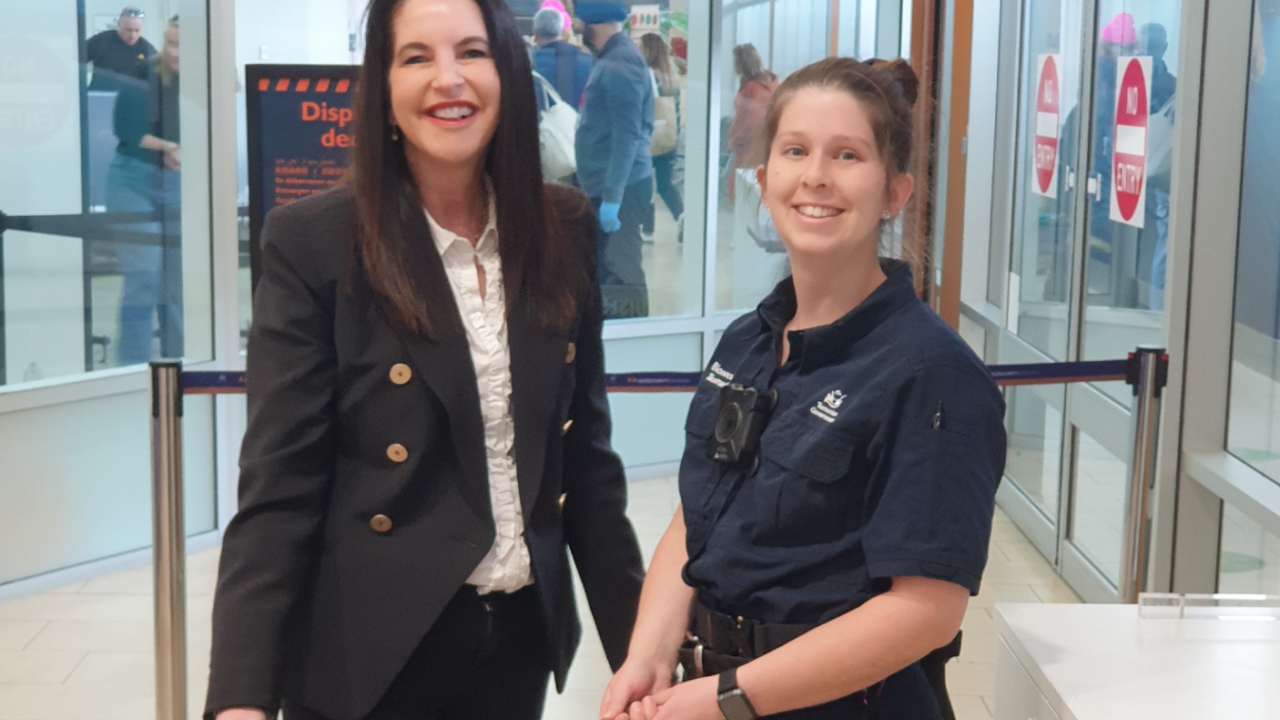Boosting biosecurity

SPONSORED CONTENT
Biosecurity Tasmania is at the forefront of efforts to protect the State’s industries, environment and public health, working at our ports and airports, to prevent the arrival and spread of pests, weeds and diseases.
While biosecurity is a shared responsibility, through our 2030 Strong Plan for Tasmania’s Future the Tasmanian Government has committed to maintaining our strong biosecurity system.
Earlier this week I had the pleasure of meeting Toby and his handler Lillian who are members of the Detector Dog Unit stationed at the Hobart Airport.
Toby has responsibility for detecting organic material, mostly fruit and vegetables, that may be in the bags of those entering the state. He’s a gatekeeper to threats like fruit fly and Varroa mite.
The 2024-25 Tasmanian Budget is investing almost $13 million to protect our borders and manage biosecurity risks.
These funds will be used to protect against pest and disease incursions, to safeguard animal welfare and to manage the risk to our important primary industries, including:
- $7.9 million boost for frontline biosecurity services;
- $3 million over four years to strengthen biosecurity resources and expertise;
- $500,000 over four years to support TasFarmers to continue enhancing on-farm biosecurity engagement;
- $1.2 million over three years for additional biosecurity officers; and
- $300,000 annually over three years to support industry groups, such as Fruit Growers Tasmania, to maintain community awareness.
The Budget also includes funding for two new Senior Biosecurity Inspectors, two Senior Biosecurity Officers and an animal welfare stakeholder engagement officer.
With new international flights between Hobart and New Zealand resuming next month it’s a good reminder of how important it is to have biosecurity at front of mind at our entry points.
We welcome the new flights and the tourists they will bring to our State and look forward to Toby and the Detector Dog Unit team doing their job to protect our agriculture sector well and keeping Tasmania pest free.

Add new comment